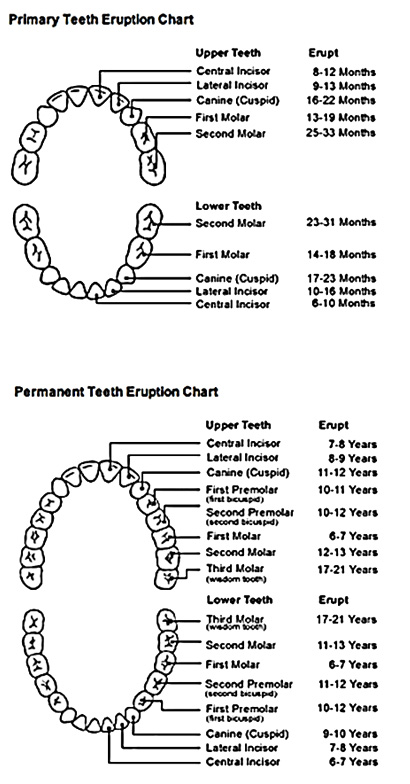Teeth Eruption Milestones
Why Are the Primary Teeth Important?
It is very important to maintain the health of the primary (baby) teeth. Neglected cavities can and frequently do lead to problems which affect developing permanent teeth. Primary (baby) teeth are important for (1) proper chewing and eating, (2) providing space for permanent teeth and guiding them into the correct position (3) permitting normal development of the jaw bones and muscles. Primary teeth also affect the development of speech and add to an attractive appearance. While the front 8 teeth last until 6-7 years of age, the back teeth (cuspids and molars) aren’t replaced until age 10-13.
- proper chewing and eating
- providing space for permanent teeth and guiding them into the correct position
- permitting normal development of the jaw bones and muscles
Eruption of Your Child’s Primary Teeth
Children’s teeth begin forming before birth. As early as 4 months, the first primary (or baby) teeth to erupt through the gums are the lower central incisors, followed closely by the upper central incisors. Usually all 20 primary teeth appear by age 3, however the pace and order of their eruptions may vary.
Eruption of Your Child’s Permanent Teeth
Permanent teeth begin appearing around age 6, starting with the first molars and lower central incisors. This process continues until approximately age 21. Adults have 28 permanent teeth, or up to 32 including the third molars (or wisdom teeth).

